Which of These Crypto Wallets do Canadians Trust Most?
Just like you keep your cash in a leather wallet (or duct tape wallet, if you’re cool), cryptocurrency wallets are a place to store your crypto, whether it’s a physical piece of hardware or a website. And, because you are storing your hard earned money in the form of cryptocurrency in these wallets, you want them to be secure. So in this article, we’ve got some of the best cryptocurrency wallets in Canada today.
But first, lets go over why we even need cryptocurrency wallets in Canada
You might be familiar with the term “blockchain” — maybe you heard it just before your eyes glazed over. But stay with me for a sec.
Think of a blockchain as a big book where all cryptocurrency transactions are written down. That way, no one can try to say they already paid you when they didn’t, or that the cheque got lost in the mail.
The way you “sign” the blockchain book is with a set of “keys” (the metaphor falls apart a bit here, I know). You have a public key and a private key.
You can share your public key. That creates the address where people send cryptocurrency when they want to pay you. But you should never share your private key. That’s how you prove to the blockchain that you’re the owner of the public key. If someone gets access to your private key, they basically already have their hand in your wallet.
The reverse is also true. To send crypto, you have to prove to the blockchain, using your private key that the money registered to the public key belongs to you.
So how do you actually use the keys? That’s where a crypto wallets come in. A crypto wallet just stores the address and the public and private keys to one or more bitcoin addresses.
What’s the Difference Between a Crypto Exchange and Wallet?
An exchange lets you buy and sell crypto. A wallet is a place to store it, as well as receive it from and send it to other people.
Some companies offer both crypto exchanges and wallets, and integrate them. We’ll get into those later.
What are the Types of Crypto Wallets?
Software Wallets
Also known as “soft wallets,” software wallets are apps that you install on your computer or phone. Your crypto is then stored locally within the software.
Hardware Wallets
Also known as “hard wallets,” hardware wallets use a piece of hardware specifically designed for holding your crypto wallet, and nothing else. Ever heard of people digging through landfills looking for bitcoin? These are what they’re searching for.
While they can be easier to lose, they’re more secure than software or online wallets. Once you disconnect them from the internet, no one is getting their hands on it unless they take it from you.
Online Wallets
These wallets are apps or websites that store your crypto online, in a server, accessible via a website.
Paper Wallets
These are physical representations of your private and public keys. They usually come with a QR code for ease of use. Paper wallets are the most secure option — unless you lose them.
What’s “Cold Storage”?
Don’t worry, no one’s putting your Litecoin in the freezer. Cold storage simply means that your crypto is stored in a wallet that’s not connected to the internet. Hot storage, as you can probably guess, means it is connected.
Cold wallets are safer than hot wallets, since no one can hack into it via the internet.
What Should I Look For in a Crypto Wallet?
Security should be at the top of your list. Look for a reputable wallet that’s preferably been around for a while. Remember, hardware wallets by their nature are more secure than software wallets, though soft wallets can be very secure as well.
Check out user reviews that talk about security, support, and ease of use. Reddit is a good place to go, as end-user reviews on specific wallets’ sites may be manipulated or cherry-picked.
If you’re reading an article about a wallet, make sure it’s from a reputable source, and the author hasn’t accepted money for a favorable review (I haven’t even been offered any, which is frankly insulting).
And look for low fees, as well as other features, like the number of coins available. If you’re just starting out, maybe you just want to invest in Bitcoin and Ethereum. But what if your friend develops a meme penny coin down the line? You won’t want to miss out on that opportunity.
Best Hardware Crypto Wallets
Ledger Nano
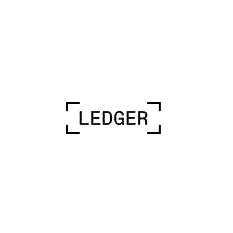
- Cost: CAD $89 (Nano S), $199 (Nano X)
- Coins and tokens supported: 5,500+
Ledger’s Nano comes in two models, both the size of a USB stick. The Nano S lets users install up to 3 DeFi (decentralized finance) apps, while the Nano X supports up to 100. The Nano X also supports Bluetooth.
Both are compatible with over 50 other software wallets, and come with 24-word recovery phrases.
Ledger also runs an exchange broker, Live, which lets users buy, exchange and lend crypto. It includes DeFi (decentralized finance) apps, NFTs (non-fungible tokens), and more. The Live app has iOS, Android, and desktop apps.
Ledger has an upcoming Visa debit card, letting users make purchases with crypto anywhere a Visa card is accepted. You can join the waitlist now.
Trezor

- Cost: €53 (Model One), €189 (Model T Express)
- Coins and tokens supported: 1,816
Like Ledger, Trezor devices come in two different keychain-style models. Both run on open-source code, which helps with security and customization.
The big selling point on the Model T is its touchscreen, which can be used to verify transfers and complete the entire recovery process. The Model T also has an SD card slot and Micro USB-C port.
Unlike the Ledgers, Trezor models are plastic, with no steel outer case.
Trezor’s software, Wallet, is beautiful and straightforward, like the other hardware wallets’. You can transfer and manage your funds from there.
Trezors are compatible with Android phones, but there is no dedicated mobile app for any system.
KeepKey

- Cost: $49 (USD)
- Coins and tokens supported: 30+
Ledger and Trezor are undoubtedly the key players, but KeepKey is an interesting budget option. It only supports a fraction of the coins that the other two do, but that’s not a problem for newbie investors or those who are only interested in trading the major coins.
For security, each KeepKey comes with a 12-word recovery phrase. And it works with a handful of software wallets.
KeepKey was bought by ShapeShift in 2017, and interfaces with its web-based platform. There you can send, receive, and trade crypto.
There are no apps — just the ShapeShift website. And some reviewers say the support isn’t as good as the other two options, and the onboarding process can be rough for newbies.
Best Software Crypto Wallets
Trust Wallet
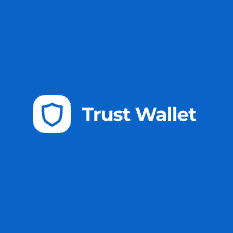
- Cost: Free
- Coins and tokens supported: 1M+
Backed by Binance, the largest crypto exchange in the world, Trust Wallet is arguably the most popular. And for good reason.
It’s sleek, user-friendly and secure.
It’s available on desktop, Android and iOS, and it offers a ton of features, including DeFi apps, Stablecoins, and instant transfers. You can make a deposit, sell, and exchange crypto easily within the app.
Plus, it promises “no selfies” in the sign-up process, which, if you’ve ever started a new DeFi app, you know is a big plus.
Coinbase Wallet
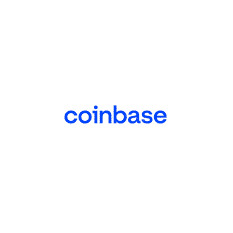
- Cost: Free
- Coins and tokens supported: 4,000
Like Trust Wallet, the big upside of Coinbase is that it offers seamless access to an exchange — meaning you can buy crypto directly through it — as well as a wallet.
Millions of people use Coinbase to buy and sell crypto every day, and it acts as an onramp for many new investors. If you bought Dogecoin on a lark last year through Coinbase, it would only take a minute or so to set up Coinbase Wallet.
The app itself is clean and super easy to use, like Trust Wallet. And it supports dapps (DeFi apps), NFTs, as well as Coinbase Earn, which gives users rewards for learning about crypto.
It also functions on the web, meaning you don’t have to download an app for any platform, if you don’t want to.
Electrum

- Cost: Free
- Coins and tokens supported: Just BTC
Man this thing is ugly. But boy, does it work.
The choice of long term Bitcoin bros, Electrum has been around since 2011, and looks its age. It’s probably not the best choice for crypto newbies, as the interface might seem overwhelming.
But once you get used to it, Electrum is one of the most secure and versatile software wallets out there.
It only handles Bitcoin, but it does it very well. It runs on open source code, and comes with a recovery phrase. Servers are decentralized, so there’s no chance of downtime, and your private key stays offline in cold storage.
Exodus
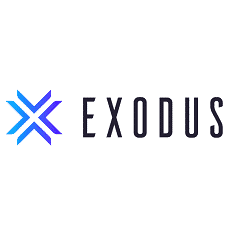
- Cost: Free
- Coins and tokens supported: 153
Exodus is very pretty. If you’re a newbie looking to get your hands on some crypto, Exodus is a great choice for a desktop software wallet. It makes an effort to avoid “tech speak,” explaining terms in plain language.
It works with the Trezor hardware wallet. There’s 24/7 customer support. And it doesn’t require any registration, meaning you can be up and exchanging in seconds.
It has iOS and Android apps, but doesn’t work on the web, requiring the desktop app to use it on MacOS, Linux, or PC.
It’s not open source, like Electrum, which is a downside for security and customization. But its track record safety-wise is clean, after millions of downloads and 6 years on the market.
MetaMask
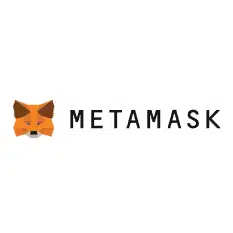
- Cost: Free
- Coins and tokens supported: 400,000+
MetaMask touts itself as a “privacy-first” wallet, with no dapps or other third-party exchanges getting access to your data. 21 million people around the globe use MetaMask, which counts for something.
It also promises the best price for trading tokens through its “Swap” feature, though it does come with 0.875% transaction fees.
MetaMask supports any ETH-based token, which is a heck of a lot.
In addition to its iOS and mobile apps, it’s available as a browser extension for Chrome, Firefox, Brave, and Edge. If you want something a little more involved than a website but don’t want to deal with a whole new app on your computer, it’s a nice middle ground.
Best Crypto Wallet for Canadian Beginners
Wealthsimple Crypto

- Cost: Free, with a 1.5 to 2% fee per transaction
- Coins and tokens supported: 34
Wealthsimple’s Crypto investment app might be the best wallet for beginners because it’s not really a wallet, per se. You can only invest in crypto, not actually interact with it.
When you want to take your money out, you have to do so in fiat currency (the regular, government-issued stuff).
That said, it’s dead simple to use, especially if you’re an existing Wealthsimple customer. Just a few taps and you’re ready to start trading Bitcoin, Ethereum and 32 other coins.
Wealthsimple Crypto comes with insurance, and the company says it keeps most of its holdings in cold storage.
Wealthsimple has drastically expanded their line of offerings in the past handful of years, including Wealthsimple Cash.
